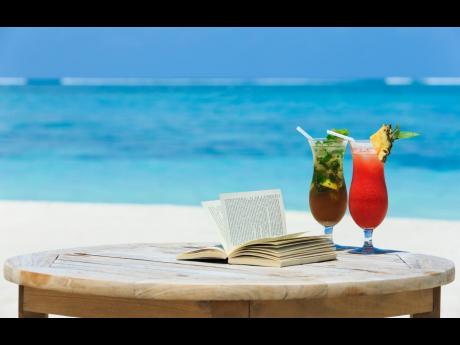Sales fizzle as rum channels dry up - • Bar closures, tourism lockdown hit alcohol market • Spirits companies join virus fight
Manufacturers of alcoholic drinks are taking a beating from the closure of bars, many hotels, and the lockdown on entertainment events – traditionally big sources of sales for them – as the coronavirus contagion sweeps across the world.
Rum and beer producers locally are said to be tallying the figures even as the top spirits producer confirms marked declines in sales.
At the same time, J. Wray and Nephew Limited (JWN), which is owned by Italian company Campari Group, and Red Stripe Jamaica, a member of the Heineken International group, are also pitching in to donate millions of dollars’ worth of products to the COVID-19 fight.
“We are seeing a contraction in our sales. We are registering a decrease in our demand for the local market, which is not a surprise because we would have had two of our major routes to market closed off – hotels and local bars,” Tanikie McClarthy Allen, JWN’s senior director for sustainability and corporate affairs, told the Financial Gleaner.
With some 10,000 bars across the country shuttered – or at least ordered to close – as part of social-distancing measures announced by the Government to slow the spread of the virus, JWN is now relying mainly on export sales, which are said to be still going strong, to shore up sales.
Supermarkets, wholesale outlets, and shops are also still open as part of efforts to keep food supplies available. Restaurants are closed except for takeout and deliveries.
“Our beers and spirits are by definition social products, enjoyed together. In Jamaica, there is a pause to social gatherings, hospitality, and events because of COVID-19. At this stage, it is not possible to assess the negative business impact as the extent and duration of COVID-19 is unknown,” beer manufacturer, Red Stripe, which also markets the D&G rum brand and other alcoholic drinks, said in a written response on Thursday.
JWN, which distributes an extensive range of spirits in the Campari portfolio, also said that it is too early to tot up the financial value of the fallout at this stage but conceded that it was likely to be “substantial”. Last year, JWN’s rum sales amounted to about €108 million, according to reports from the Campari Group.
“We are still in that assessment period. It’s too early to call a number or to speak to a percentage,” said McClarthy Allen regarding the potential impact.
The Financial Gleaner was unable to get comments from other rum makers Worthy Park Estates, Hampden Estates, and National Rums of Jamaica on how they were faring.
For the maker of the world-famous Appleton Estate rum line and the Wray and Nephew white overproof rum, which are big-selling drinks in local bars, nightclubs, and parties, export sales are, up to this point, still encouraging, the company indicated. This has been attributed to overseas wholesalers and distributors stocking up, apparently in the hope of an eventual return of normal retail business activity.
“We are still exporting. We are not yet seeing a dampening in the demand for the export market, but we do anticipate that as the impact of the virus becomes magnified, we will see an adjustment there,” the JWN spokesperson explained.
She added that the company was not yet able to drill down into the numbers to determine whether export sales were even across Campari’s 25 global markets.
Meanwhile, the group’s production and administrative operations have been disrupted to varying degrees, globally. Offices and production facilities in China, where the virus outbreak originated, are now getting back on stream after a three-month mandatory lockdown. Production is continuing at global production and corporate headquarters in Italy, the European epicentre of the virus spread, while corporate functions there are largely being run remotely by staff working from home.
“Italy has been under strain. We did not stop producing in Italy, however. Our production facility remains open with, of course, adjustments for health and safety and the welfare of employees,” McClarthy Allen said.
Extra health precautions, including temperature checks and added sanitising for staff, are said to have been also put in place at JWN’s Kingston and Appleton, St Elizabeth plants.
“At our units around the world, everybody responds to their local situation with guidance from the group. However, it is safety first. We have a duty to our staff and a duty to our consumers,” said the JWN spokeswoman.
Red Stripe echoed the safety concerns without elaborating on the continuity of production and commercial activities in Jamaica and at other Heineken plants around the world.
“For us, the first priority remains the health and well-being of our people. We follow government guidelines, inform our employees regularly, have instituted measures of hygiene, and have paused business travel,” the company said.
“In these exceptional times, we continue to work closely with our suppliers and customers and listen to their concerns about the immediate impact of COVID-19 on their businesses and to support where possible,” it added.
Red Stripe has donated 1,500 cases of its non-alcoholic drink Malta to the Government for distribution to the elderly housed at state-run infirmaries.
JWN has made available to the Government, through the National Health Fund, more than 50,000 litres of high-strength alcohol valued at some $250 million for use in the health sector and to make hand sanitiser for government workers.

